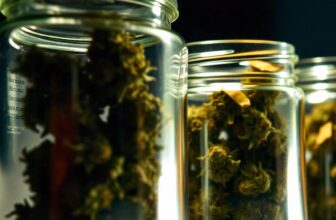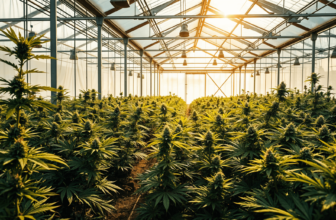To accommodate the growing demand for research into the therapeutic potential of cannabis, psilocybin, and dimethyltryptamine (DMT), the Drug Enforcement Administration (DEA) has decided to increase production quotas for these substances. This change is in response to requests from registered manufacturers who have emphasized the need for higher limits to meet the requirements of medical and scientific communities.
These revised quotas reflect not only the increasing interest in the therapeutic effects of these compounds but also recognize the progress made in research and clinical trials involving hallucinogenic substances.
Initial Proposed Levels Unchanged for Marijuana and Other Psychedelics
While the changes are a positive sign for research into THC, psilocybin, and DMT, the DEA has not altered its initial proposed production levels for marijuana and other psychedelic drugs. These remain unchanged since they were first announced in November. However, it is worth noting that the DEA acknowledged the surge in interest and clinical studies involving these compounds when initially proposing the quota adjustments.
Addressing Comments and Requests from Stakeholders
The DEA has dealt with various stakeholders’ comments and suggestions throughout this process. Regarding comments requesting increased production quotas for religious use of psychedelics, the agency did not directly address such requests or schedule a hearing with the DEA administrator. Nevertheless, it has been open to dialogue and consideration of different perspectives on this matter.
Moreover, the DEA received comments recommending the inclusion of natural sources of psilocybin, psilocin, and mescaline when setting quotas. In response, the agency clarified that its role is to determine quotas based on individual constituents rather than whole mushrooms or plants, thereby maintaining a focus on the specific compounds involved in research.
Challenges Faced by the DEA Amid Accelerating Research into Cannabis and Psychedelics
Although the increased production quotas signal support for rigorous research into cannabis and psychedelic substances, the DEA has faced criticism from scientists and advocates who argue that certain actions taken by the agency hinder studies. This includes strict regulations surrounding access to these substances, which can impede researchers’ ability to acquire sufficient material for their work.
It is crucial that the DEA continues to adapt and respond to the evolving landscape of medical and scientific research into these drugs, ensuring the appropriate balance between necessary regulation and supporting the potential benefits they may hold for patients.
Implications of Georgia’s Recent Medical Marijuana Legalization
In light of Georgia’s recent legalization of medical marijuana, some stakeholders have questioned whether this will influence the Schedule I status of cannabis at the federal level. To date, there has been no indication that the DEA plans to reschedule marijuana as a result of this state-level decision. As such, it remains classified as a Schedule I substance with a “high potential for abuse” and “no currently accepted medical use.”
The Future of Psychedelic and Cannabis Research Hangs in the Balance
As the DEA adjusts production quotas for THC, psilocybin, and DMT, researchers worldwide are watching carefully to see how these changes impact ongoing and future studies. The agency’s increased openness to addressing comments from manufacturers and stakeholders indicates a willingness to engage in constructive dialogue around the subject – a promising sign for continued growth in this area of research.
However, challenges remain, and the DEA and other regulatory bodies must prioritize finding ways to accommodate scientific progress while ensuring public safety and addressing concerns surrounding the potential abuse of these substances.
One thing is sure: as more strides are made in understanding the therapeutic effects of cannabis and psychedelics, the position of regulatory agencies will continue to be scrutinized. It is up to these organizations to strike a balance between public interest, safety, and the advancement of medical knowledge for the benefit of all.





